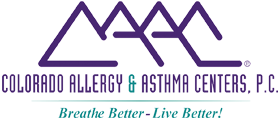COPD is a term used to describe lung diseases that can worsen over time; these diseases include emphysema, chronic bronchitis and certain types of asthma. COPD often develops in patients who have a history of smoking. COPD symptoms tend to include shortness of breath, excess mucus production, coughing and wheezing. Here are 5 ways you can help manage your COPD symptoms and prevent “flare ups”.
1) Live a healthy lifestyle by moving!
A healthy lifestyle includes exercise! Exercise is important for not only our heart and lung health, but our mental health too. COPD can cause shortness of breath with activity, which often triggers anxiety, but have no fear, there are two breathing techniques that can be implemented to help manage this. The first technique is purse-lip breathing which includes a slow deep breath in through your nose followed by a long breath out through pursed (or kissing) lips. This helps keep your airways open and gets rid of all the air inside your lungs. The second technique is coordinated breathing with exercise. This technique includes pursed lip breathing during the most exerting part of your exercise. You may want to consider participating in pulmonary rehabilitation which is a great way to exercise while being supervised by nurses and other healthcare providers. They will teach you how to master the appropriate exercises and breathing techniques that will help you be successful!

2) Hand-washing!!
We’ve been taught since we were little kids the importance of hand-washing, but for those with COPD this is especially important. Infections are caused by germs, such as viruses or bacteria, that are passed through contact with someone else who is sick. To prevent these germs from causing you to become sick, potentially making your COPD symptoms worse, make sure you are washing your hands well and often. Also, try to stay away from people that are sick.
3) Get your vaccines
When you have a chronic lung disease, you are more susceptible to complications from potentially life-threatening infections that can be prevented by vaccines. Also, most “flare ups” associated with COPD are triggered by germs, such as flu or pneumonia. The most important vaccines you should consider getting are the two types of pneumonia vaccines (Prevnar PCV13 and pneumovax PCV23) and the influenza vaccine.

4) It is never too late to quit smoking!
Quitting smoking can help control your breathing symptoms and prevent further lung damage. Studies have shown that smokers who quit have fewer “flare ups”, fewer admissions to the hospital and have less risk of dying from COPD. Nicotine is addictive, we know that this makes stopping a real challenge. If you are feeling overwhelmed by quitting or do not know where to start, consider consulting with your primary care provider to discuss quitting aids and resources that are available.
5) Try to avoid respiratory triggers
Common COPD respiratory triggers include smoke (including secondhand smoke), pollution, vehicle exhaust, dust, pet dander, extremes in temperature and strong chemical fumes. It is important to identify your personal triggers and avoid them.
Category: Uncategorized



